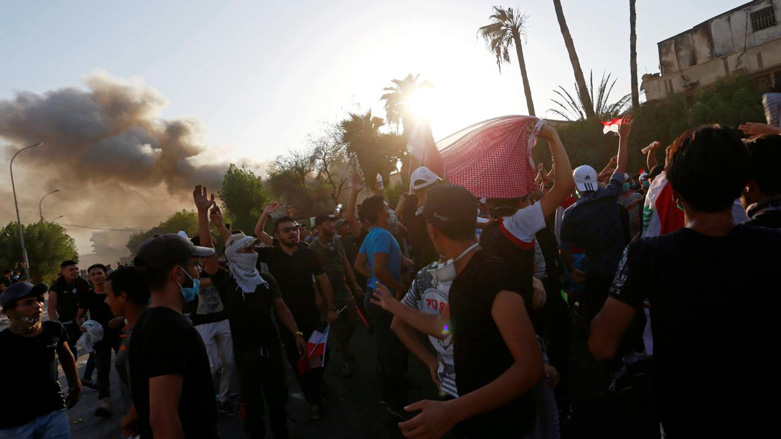Iraq's top cleric calls for calm as Basra protesters torch Iranian consulate

ERBIL (Kurdistan 24) – Iraq’s highest-ranking Shia cleric on Friday condemned the use of violence in demonstrations, but said that Iraqis "no longer tolerate more government failures in providing basic services."
Grand Ayatollah Ali al-Sistani’s acolytes “are following the developments in Basra with great concern and express deep sorrow for what happened there,” the leader communicated in a sermon recited by his aide, Abdul-Mahdi Karbalai, in Iraq's holy city of Karbala.
Sistani has no actual governmental position or authority, but wields considerable influence among millions of Shia Muslims in Iraq.
In July, the Ayatollah warned Baghdad that the scope of the protests could increase in a way “they may regret,” saying that even if “demands for reforms fade away” for a period, they are poised to return at a later time “much stronger.”
On Friday, Sistani said his warnings “fell on deaf ears.”
Later in the day, protests would continue for the fifth day in a row, with demonstrators burning the Iranian consulate in Basra.
The Shia cleric urged all sides to cease the use of violence, both Iraqi security forces and protesters, the latter who have been reported to have thrown stones and Molotov cocktails at government buildings. He said such actions will further complicate the possibility of finding a solution.
He also said that Iraqis suffering from the lack of essential services “is a natural consequence of the poor performance of senior officials in sensitive positions in successive governments built on political quotas and favoritism, without care for professionalism and efficiency.”
The cleric went on to add that the new government—the lawmakers of which agreed to an emergency session at the call of cleric and election winner Muqtada al-Sadr—must be different from its predecessors.
Highlighting the failure to supply Basran residents with clean water, Sistani said there was a “government failure” in tackling the problem, saying the crisis could have been largely mitigated if not for the “inefficiency of some officials” and “the disinterest of others.”
Earlier on Friday, Sadr publicly warned Prime Minister Haider al-Abadi that failing to meet the demands of Basra protesters who "will not easily stand down," would be catastrophic.
Editing by John J. Catherine
